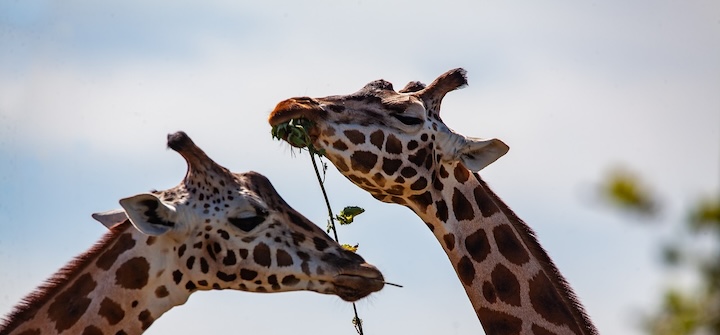Zoo and wildlife veterinarian
 Image by Kev from Pixabay
Image by Kev from Pixabay
A career as a zoo or wildlife veterinarian offers unique opportunities to work with diverse species, contribute to conservation efforts, and address critical challenges in animal health and welfare.
Whether you're interested in hands-on clinical care, population-level health research, or influencing policy, this field combines science, compassion, and innovation to make a lasting impact on the natural world. Explore the roles, pathways, and resources within this career area.
What are the main responsibilities and opportunities working as a zoo vet?
Working as a zoo veterinarian typically involves caring for all animals in a zoo, aquarium, or wildlife park. Although clinical work is part of the role, much time is dedicated to preventative medicine. This includes ensuring species-appropriate nutrition, husbandry, vaccinations, antiparasitic treatments, and conducting quarantine and health checks.
Major surgeries are rare in zoo settings and usually require assistance from veterinary or human surgeons. Instead, expertise in the capture, restraint, handling, and anaesthesia of various species—from invertebrates to primates—is essential. Zoo veterinarians also oversee measures to prevent infectious and zoonotic diseases and ensure legal compliance in operations, such as animal transport and zoo licensing. Collaboration with animal keepers, curators, and external stakeholders is vital, requiring a broad understanding of zoo management.
Watch this video from the European College of Zoological Medicine on the responsibilities of zoo and wildlife vets
What are the main responsibilities and opportunities working as a wildlife vet?
Wildlife veterinarians experience diverse roles depending on their location and the species they work with. Some provide hands-on care for individual cases in wildlife rehabilitation, while others address population-level health issues, such as monitoring infectious diseases or pollution.
Many wildlife veterinarians work in research, academia, government agencies, or not-for-profit organisations, with some roles focusing more on policy and legislation than animal care. Clinical medicine may or may not feature prominently, so it is crucial to choose roles that align with your interests and values.
Zoo and wildlife veterinarians often contribute to conserving species threatened with extinction. This shared purpose motivates many professionals in these fields, fostering a passionate and like-minded community.
What do I need to consider before pursuing a career in zoo and wildlife medicine?
Zoological medicine is a niche field with limited positions, making competition for jobs intense. Permanent roles are more common in zoos, while many wildlife positions depend on project funding and may offer temporary contracts. Understand the terms and conditions of any role to ensure they suit your circumstances.
In the UK and Europe, zoos typically rely on income from visitors and donations, while wildlife veterinary roles are often tied to not-for-profits or grant-funded projects. Consequently, salaries may be lower than those in small animal or farm veterinary positions. Roles may also require significant clinical experience, postgraduate training, or both.
Working hours vary depending on the position. Zoo roles generally follow standard business hours, with occasional weekend or holiday work on a rota. Wildlife medicine often demands flexibility, including long fieldwork hours in challenging conditions. Physical demands can also be significant.
How can I maximise EMS opportunities?
To stand out in this competitive field, demonstrate sustained interest and gain as much relevant experience as possible through your Extra Mural Studies (EMS). Aim for diverse placements, working with exotic companion animals, zoo and wildlife species, and domestic animals. Transferable clinical skills are more important than highly specialised experience at this stage.
Plan your EMS placements early, as opportunities can be fully booked years in advance. Develop skills in animal handling, husbandry, and anaesthesia, which are crucial for these roles. Building a broad foundational knowledge and applying it across species is vital for success.
What postgraduate training and qualifications can I do?
Residencies are a common route into zoo medicine and require either a one-year internship or two years of clinical experience. Wildlife medicine offers broader postgraduate opportunities, including master's and PhD programmes in conservation or population health, with some available online for greater flexibility.
The RCVS Certificate in Advanced Veterinary Practice (CertAVP) offers a mid-level qualification, including a Zoological Medicine pathway, suitable for those unable to pursue a residency or PhD. However, it requires self-directed study and arranging mentorship.
How should I prepare during veterinary school?
Get involved in your university's Veterinary Zoological Society and attend talks to network with others in the field. Consider joining professional organisations like the British Veterinary Zoological Society or the European Association of Zoo and Wildlife Veterinarians, which offer student memberships and access to conferences.
Volunteering, attending workshops, and participating in summer schools can further enhance your understanding of this field.
What support is there for new graduates?
Understand the expectations of potential roles, especially in challenging environments. Larger zoos often provide mentoring and structured training, while residencies offer formal, comprehensive development. Research-based postgraduate programmes also provide excellent mentoring opportunities.
What are the career progression opportunities?
Veterinarians often take on leadership roles, managing teams or research projects. Formal leadership training can enhance these opportunities. Other career paths include academic teaching, research, or working with government and non-profit organisations.
Explore more resources for further information
For more information on residencies, visit:
Additional organisations and resources include:
Key employers include:
- Zoological Society of London
- Mandai Wildlife Reserve
- Wildlife Conservation Society
- San Diego Zoo Wildlife Alliance
- Institute for Zoo and Wildlife Research
Universities worldwide also offer roles in teaching, research, and fieldwork.